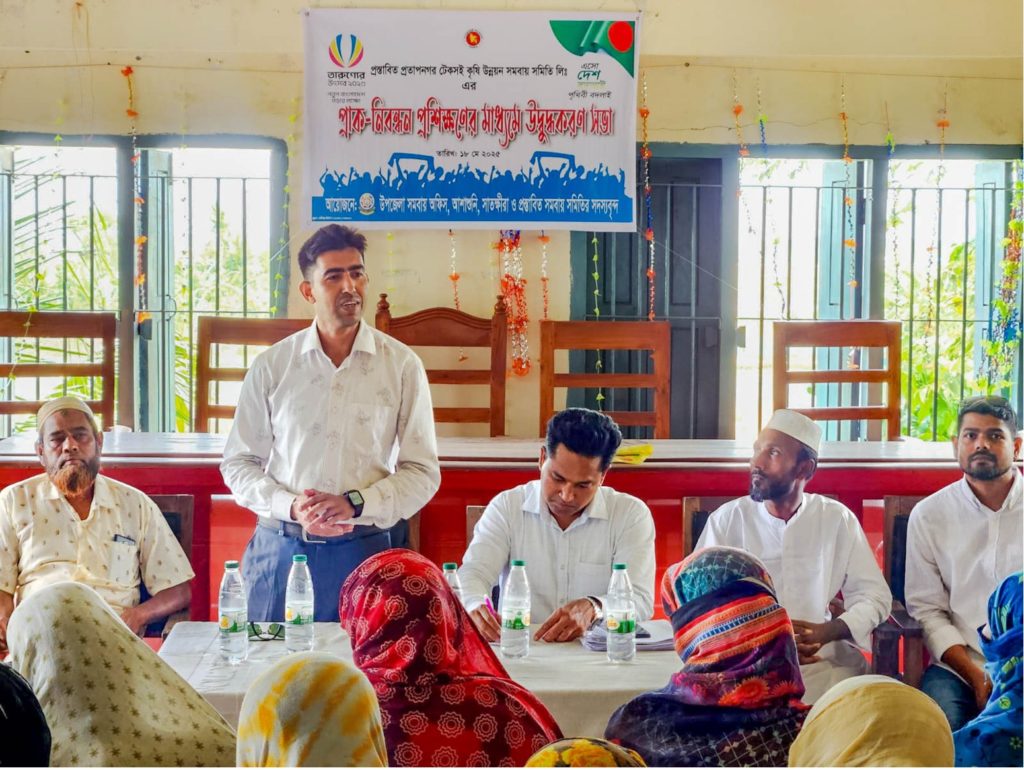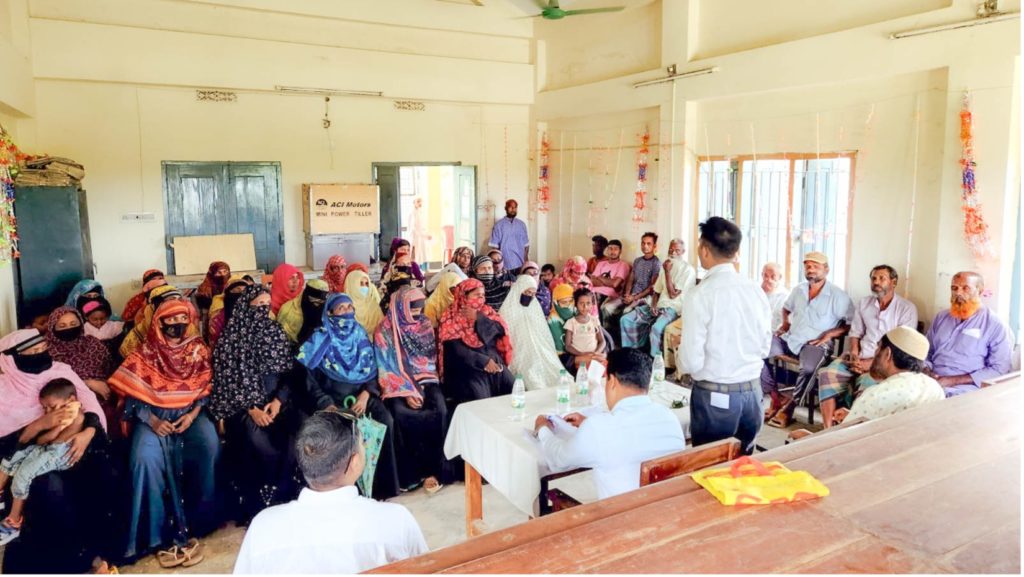Consultation Meeting on Farmer Cooperatives in Pratap Nagar, Assasuni initiated by the Dept. of Cooperatives, GoB, and SAJIDA Foundation Host
Department of Cooperatives, Govt. of Bangladesh, and SAJIDA Foundation jointly organized an important consultation meeting on Sunday, 18 May 2025 in Protapnagar, Assasuni Upazila, aimed at empowering local farmers. The event sought to raise awareness on the benefits of cooperative-based organizations and the government procedures for official registration.
Technical support for the event was provided by SAJIDA Foundation’s Living Lab office under the “ENGAGE: Eliciting Needs-based Grassroots Action through Cross-Group Engagement” (ENGAGE4Sundarbans) project.
Assistant Cooperative Officer Md. Tanvir Hossain, Cooperative Inspector Sannasi Kumar Mondal, Union Councill Chairperson Abu Daud Dhali, respected community figures, SAJIDA Foundation’s research team, and 30 farmers from the ENGAGE project participated in the consultation meeting.
The meeting with cooperative officials introducing themselves and setting the context for the day. An overview of the ENGAGE project’s goals was shared, laying the foundation for a collaborative dialogue between government representatives and farmers.

Cooperative Inspector Sannasi Kumar Mondal took the floor to explain the concept of cooperative societies. He walked the participants through the history, structure, and purpose of cooperative societies—highlighting how these member-led groups can unlock access to government incentives, loans, training, and technical support. He thoroughly explained savings practices, next steps, required documents, and registrar management, and encouraged questions and feedback from participants.
Cooperatives are more than just a formal registration—becoming a registered farmer cooperative would enhance the farmers’ ability to negotiate, bargain, and participate in decision-making processes, allowing them to secure fair pricing, marketing support, and greater recognition from both government and non-government sectors.
The session was then taken forward by Assistant Cooperative Officer Md. Tanvir Hossain, who focused on the process: meeting procedures, member duties, financial management, accounting methods, and rules around loan disbursement and repayment. At one point, Rahima Begum, a farmer from the group, asked about the types of government support cooperatives could receive. The officials responded with clarity—registered cooperatives can benefit from a wide range of services from different government departments, especially in agriculture.
Towards the end of the session, Md. Tanvir Hossain asked a participant what she had taken away from the training, turning the spotlight onto the voices of those the initiative aims to serve.
Union Parishad Chairman Abu Daud Dhali wrapped up the meeting with a heartfelt vote of thanks. He assured the full support of the Union Parishad and expressed gratitude to SAJIDA Foundation for bringing such meaningful initiatives to life. His words reflected a sincere commitment to the farmers and their journey towards empowerment.

This meeting instilled a new perspective among farmers, positioning cooperatives as key to sustainable agricultural development and increased climate resilience in the future. Participants actively shared their opinions, asked questions, and expressed interest in engaging in the proposed activities.
What stood out most was the visible initiative from government institutions. The Department of Cooperatives came prepared with a proposed name for the cooperative and even a printed banner, signaling true ownership and intention. The combined presence of government officials and the Union Parishad Chairman reflected not just endorsement, but a deeper commitment to supporting grassroots agricultural development.
This kind of multi-level engagement—where both the Department of Cooperatives and the local Union Parishad are actively involved—sends a strong signal. It represents a promising beginning for building sustainable, climate-resilient, farmer-led cooperatives. Government backing is essential for unlocking long-term benefits and ensuring that public resources reach the people who need them most.
